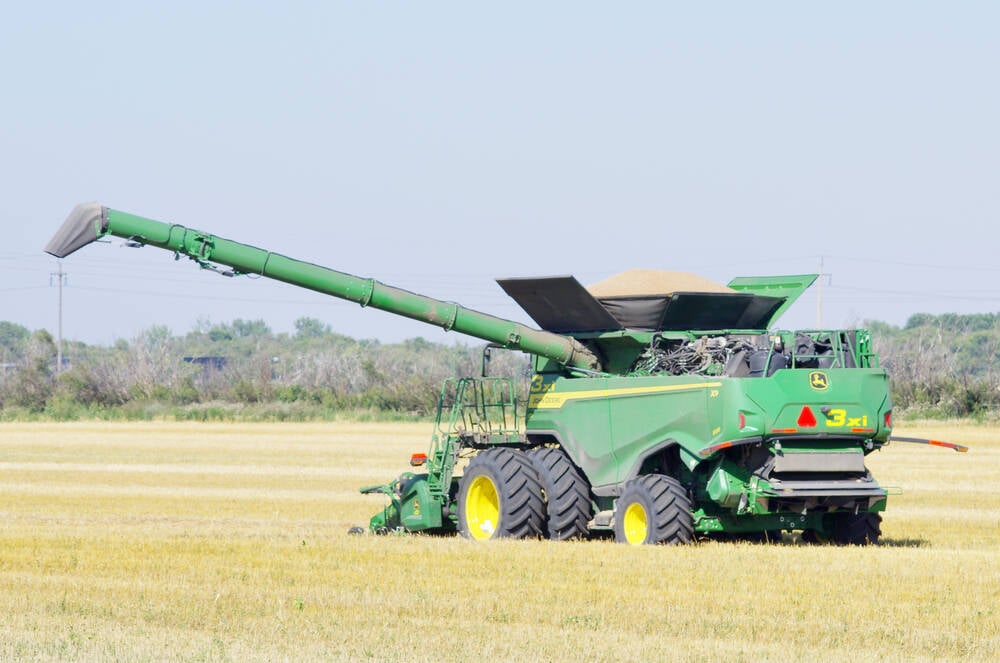Canada lags in agri-food innovation funding

A news release announcing winners of the sixth annual Grow-NY Food and Agriculture competition landed in my inbox earlier this month. As a farm writer who writes about agri-food innovation in Canada and abroad, that topic always catches my attention.
Read Also


Policy risk is on farmers’ minds, but it’s as clear as mud
Policy risk was the top concern in a Canadian Agri-Food Policy Institute survey, but the reality of that risk is murky and hard to understand.
The grand prize was awarded to a U.S.-based company called Unibaio, which uses natural polymers derived from shrimp waste to trap the active ingredients of pesticides and fertilizers and make them easier for plants to absorb.
Two runner-up prizes went to Pure Nano Tech, whose irrigation technology accelerates plant growth, and to UdderWays, a brushless udder technology that cleans and dries cow teats before milking. Four third-place prizes were also awarded.
Although impressive, it was not the innovations that grabbed my attention. It was the value of the competition.
Total available prize money in the Grow-NY competition was US$3 million, with the grand prize winner receiving $1 million. The remaining funds were split between two $500,000 prizes and four $250,000 awards.
Those are significant amounts of money for any small business, but particularly for start-ups or companies involved with innovation that may have trouble securing investments or funding from traditional sources.
The Grow-NY competition is funded by Empire State Development through its Upstate Revitalization Initiative in the central New York, Finger Lakes and Southern Tier areas. Each winning team must operate in the region for at least one year, while also providing a modest equity stake to Cornell University, to fund future food and agriculture entrepreneurship programming.
This shows how seriously our neighbours to the south take agri-food innovation – both by recognizing agriculture as a priority sector with economic growth potential and by making meaningful investments into agri-food entrepreneurs in their regions.
The closest we’ve come to this level of funding in Canada was the federal government’s multi-year Food Waste Reduction Challenge, in which two winners this spring were each awarded up to $1.5 million to grow and scale their food waste solutions.
In Ontario a few years ago, the Ontario Ministry of Agriculture, Food and Agribusiness provided approximately $2 million through its Fertilizer Accelerating Solutions and Technology Challenge to help bring alternative fertilizer solutions to market.
Those are exceptions rather than the norm.
The Grow-NY competition illustrates how far Canada lags behind when it comes to supporting and nurturing innovation in the agri-food sector.
Canada is well known globally for the funds it puts into research. The annual Bloomberg rankings place us in the top 10, in fact. But how well we do in moving that research through commercialization and into the marketplace is another story. Here, Bloomberg’s last global rankings have Canada in 21st place out of 50 countries, and we seem content to stay there.
Some of you may remember the 2017 Barton Report, a set of recommendations from the federal government’s Advisory Council on Economic Growth. It identified our agriculture sector as having potential for substantial growth, but to realize that potential, Canada had to address significant growth barriers.
These included a cumbersome and expensive regulatory system, a fragmented innovation ecosystem, poorly coordinated public sector support programs, lack of funding and support for commercializing and scaling innovations, and the absence of private sector-led growth funds to invest in agri-food innovation.
There has been some progress with establishment of agri-food focused accelerators such as Cultivator in Saskatchewan and Zone Agtech in Quebec, as well as investors like Emmertech, Tall Grass Ventures and Ag Capital Canada.
Bioenterprise Canada has been active in building a national innovation network of resources and mentors through Canada’s Food & Agri-Tech Engine.
But the core barriers remain. Unless Canada places a higher strategic priority on its agri-food sector and becomes more comfortable with making more meaningful investments in the future of that sector, we’ll never become a true player on the global innovation stage.
Source: Farmtario.com

